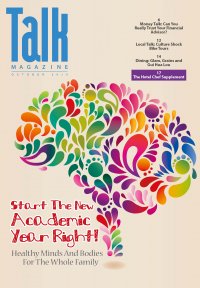Allergens, Allergies and Allergic Reactions

By: Mary A Drobnak RN, BSN, MSN
Many people who have never had allergies prior to coming to Shanghai have developed them while living here from exposure to new allergens and pollution. On the other hand, Shanghai is not always to blame, as some newcomers may experience an improvement of allergy symptoms in the absence of an allergen they are no longer exposed to from home. Fact is that everyone has different ‘triggers’ and responses to different allergens. Although allergies are seen more in children who tend to outgrow them, allergies can occur and recur any time in one’s life.
For the most part, allergies are fairly common and seasonal, but environmental factors play a role too. We tend to associate allergies with the most common seasonal outdoor allergens such as springtime pollen from flowers and trees, summertime grasses and fall weeds. However, indoor allergens are also the culprits and can make allergies occur throughout the year. They include mould and mould spores, fungus, dust and dust mites, insect parts, cockroaches and the skin, dander and urine from our furry little friends. Additionally, some people may be allergic to certain foods/ingredients and medications.
So why do they occur? Allergies occur due to the overreaction of our immune systems to a substance that is usually harmless to most people. In response to these allergens the immune system of an allergic person releases chemicals called histamines. It's the release of these chemicals that causes allergic reactions and symptoms, affecting a person's eyes, nose, throat, lungs, skin, or gastrointestinal tract as the body attempts to rid itself of the invading allergen. Future exposure to that same allergen (things like nuts or pollen) will trigger this allergic response again. This means every time the person eats that particular food or is exposed to that particular allergen, he or she will have an allergic reaction.
Although histamines are released to help fight the allergen, they in fact cause the allergy symptoms. With seasonal and indoor allergens many people experience a runny nose with sneezing, itchy and watery eyes, itchy and scratchy throat and dry cough. Others have a stuffy nose, congestion, or even wheezing. Swollen eyelids and even dark circles under the eyes may also develop from the collection of the chemicals the body releases in response to allergens. These chemicals are also released into the skin and may present as a rash, hives, redness, or swelling in a specific area or all over the body. Many times skin irritations are even due to changes in weather and the reaction to extreme heat or cold, the friction and rubbing of clothing against the skin, or topical contact with a new product or allergen.
Food allergies tend to exhibit more outward symptoms from minor itching, facial swelling, rashes, or hives to severe reactions such as difficulty breathing and even anaphylactic shock. Parents with infants and toddlers are advised to always slowly introduce new foods one at a time so they can know first-hand if a particular food causes any reaction. Once a food or allergen has been identified, the best way to prevent an allergic reaction to food is to simply avoid the culprit and make others aware. The most common food allergies are to a variety of nuts, shellfish, soy, wheat, milk and eggs.
While in Shanghai, people with food allergies should take care when eating out and never rely on the restaurant to remove a particular ingredient you may be allergic to as this is not likely to happen or be understood. Many expats who are aware of their allergic reactions to foods, bee stings or medications should wear a medical alert bracelet and carry an EPI pen (epinephrine) in case of an emergency. If you do suffer from severe reactions to foods or medication, make certain to seek medical advice so you know the best treatment options and available emergency medical facilities while living in Shanghai. Always remember to have an emergency plan and tell your friends too.
Send Nurse Mary your health questions and concerns at [email protected]
Basic Daily Advice For Allergies
For those who suffer from outdoor allergies you should try to stay inside during times when pollen counts are highest (early to mid morning) and on windy days when pollen and pollution particles are inescapable. Get into the habit of wearing eye protection (ie sunglasses) and/or a mask to avoid pollen and particles from entering your eyes, nose and mouth. Keep windows closed and use air conditioning units rather than fans during the hot months. Indoor allergens must be identified and eliminated if possible. Air purifiers can be helpful, however mould, dust and pet dander require good house cleaning and the vacuuming of surfaces, curtains and carpets (and your pets). Also consider plastic coverings for pillows, mattresses and cushions to keep dust mites at bay and periodically treat your apartment to ward off pesky insects.
Treatments for seasonal allergies vary. Antihistamines to suppress histamine release, decongestants to help open the air passages and saline nasal irrigation to rid the nasal passages of the airborne allergens that get trapped in there are all widely used for seasonal allergies. Something to remember is that allergies aren't usually associated with low-grade fever or muscle aches, and if these are present it may likely indicate a cold or infection. Additionally, there is a difference between being allergic to a food and having intolerance to a food.
Food intolerance is a response from the digestive system rather than an immune system response. When one has intolerance to dairy or other foods there may be an underlying problem that requires addressing. When in doubt about allergies, ask your doctor who can also help identify which medications are readily available here in Shanghai.

